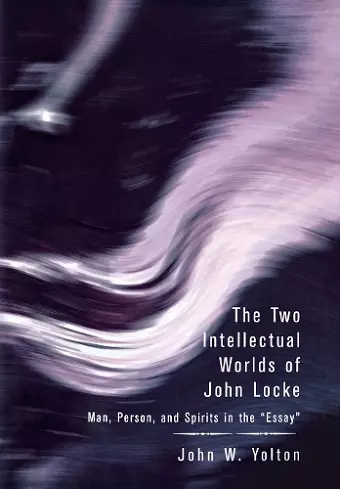The Two Intellectual Worlds of John Locke
Man, Person, and Spirits in the "Essay"
Format:Hardback
Publisher:Cornell University Press
Published:21st Sep '04
Currently unavailable, and unfortunately no date known when it will be back

Using his intimate knowledge of John Locke's writings, John W. Yolton shows that Locke comprehends "human understanding" as a subset of a larger understanding of other intelligent Beings—angels, spirits, and an omniscient God. Locke's books on Christianity (The Reasonableness of Christianity and Paraphrases of St. Paul's Epistles) have received extensive analysis and commentary, but little attention has been given to the place of his Essay Concerning Human Understanding in his religious and theological beliefs. Yolton shows that Locke's account of what it is to be human in that work is profoundly religious.
Yolton's book opens with an attempt to sort out several important terms basic to Locke's account of identity: man, self, person, and soul. A number of rarely examined components of Locke's thought emerge: the nature of man, the nature of a human being, and the place of man in the universe among the other creatures. Some will be surprised to learn that the domain of God, angels, and spirits is a part of Locke's universe, where it is considered the hoped-for destination of the just.
The Two Intellectual Worlds of John Locke also includes Yolton's exploration of Locke's commitment to immaterial principles for understanding the world; his obsession with happiness; the dialectical tensions between man, person, and soul; several interesting conjectures about spirits; and the notion of natural philosophy that includes speculation about spirits as well as bodies.
It is plain that for any future investigations into Locke's thoughts about immaterial spirits, John Yolton's The Two Intellectual Worlds of John Locke will be a standard source.
-- Udo Thiel * Times Literary SupplemeISBN: 9780801442902
Dimensions: 229mm x 152mm x 22mm
Weight: 454g
208 pages